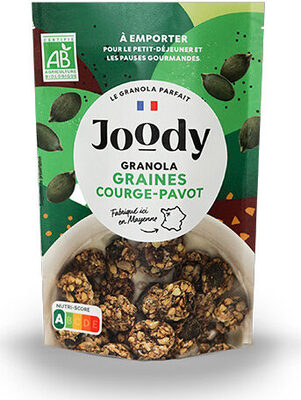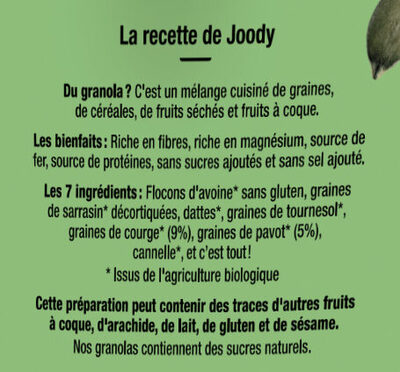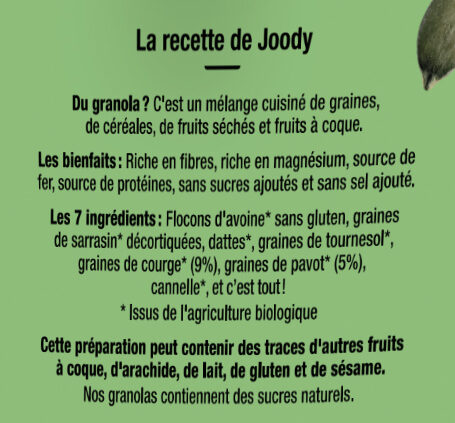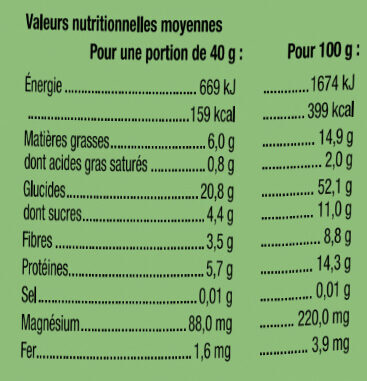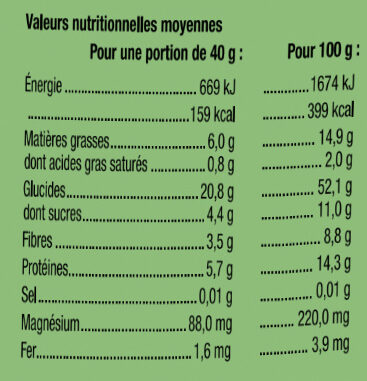Granola Graines de courge - Pavot - Joody - 80 g
This product page is not complete. You can help to complete it by editing it and adding more data from the photos we have, or by taking more photos using the app for Android or iPhone/iPad. Thank you!
×
Some of the data for this product has been provided directly by the manufacturer Fruits & You.
Barcode: 3770016639170 (EAN / EAN-13)
Common name: Mélange cuisiné de graines, de céréales, de fruits séchés et fruits à coque
Quantity: 80 g
Brands: Joody
Categories: Plant-based foods and beverages, Plant-based foods, Breakfasts, Cereals and potatoes, Cereals and their products, Breakfast cereals, Cereals with fruits, Mueslis, Crunchy mueslis, Mueslis with fruits, Crunchy mueslis with fruits, Crunchy muesli with fruits fortified with vitamins and chemical elements
Labels, certifications, awards:
Low or no salt, Low salt, No gluten, Organic, Vegetarian, EU Organic, No preservatives, Non-EU Agriculture, Source of fibre, Source of proteins, Vegan, Eco-Score, Eco-Score A, EU Agriculture, EU/non-EU Agriculture, FR-BIO-01, High fibres, High proteins, Iron source, Made in France, No added sugar, No additives, Nutriscore, Nutriscore Grade A, AB Agriculture Biologique, fr:Naturellement sans gluten, fr:Riche en magnésium

Manufacturing or processing places: France, Mayenne
Link to the product page on the official site of the producer: https://joody.fr/
Countries where sold: France
Matching with your preferences
Report a problem
Data sources
Product added on by astrid-lfd
Last edit of product page on by roboto-app.
Product page also edited by manoncorneille, org-fruits-you.
